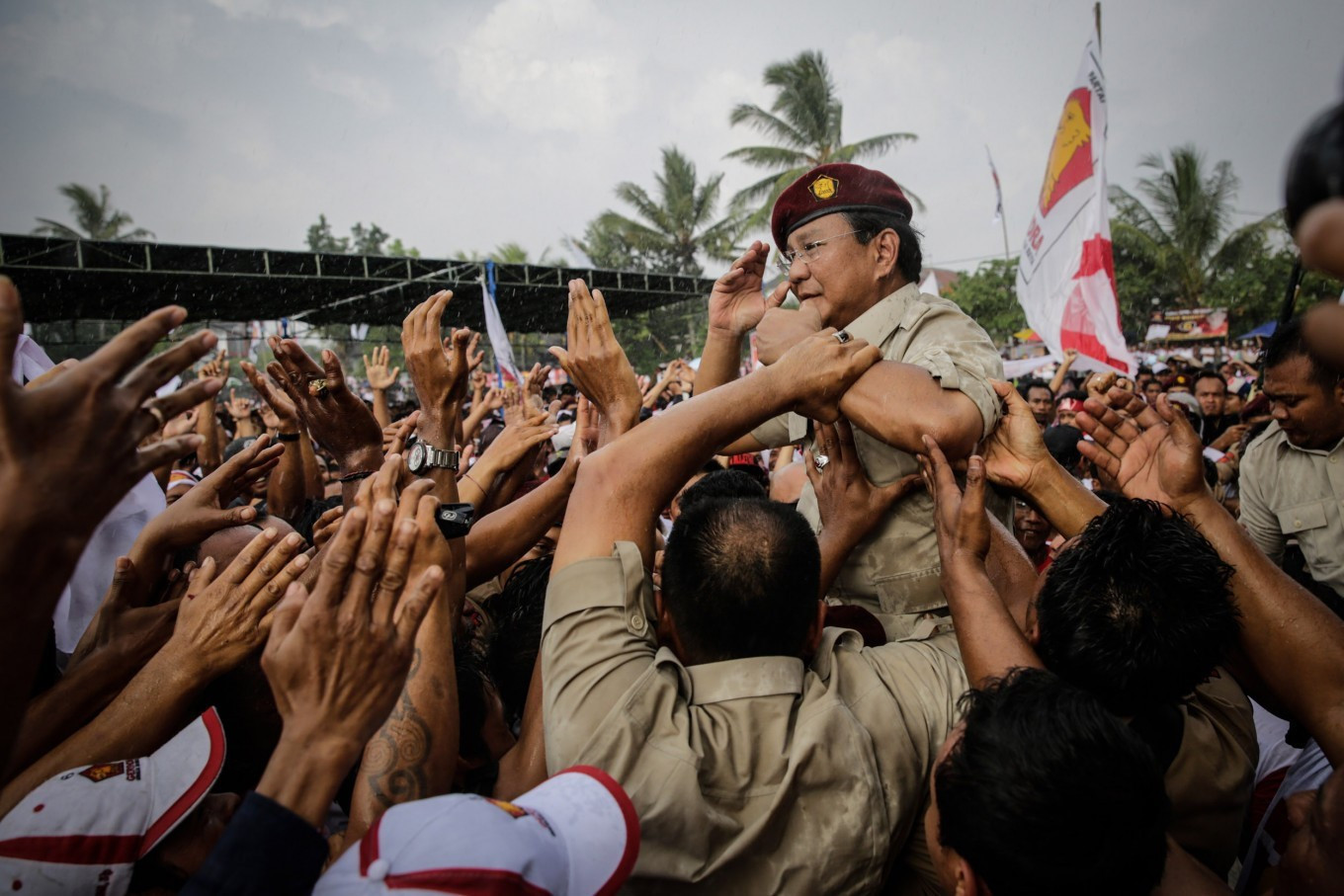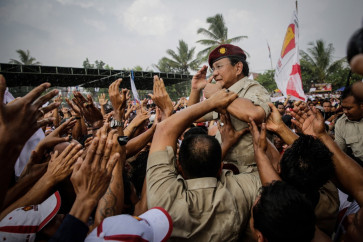Popular Reads
Top Results
Can't find what you're looking for?
View all search resultsPopular Reads
Top Results
Can't find what you're looking for?
View all search resultsAnalysis: Political fairy tale: Gerindra’s defining steps to glory
Change text size
Gift Premium Articles
to Anyone
G
erindra, President Prabowo Subianto's political party, is the third largest in the country, trailing only behind the nation's oldest party Golkar and the Indonesian Democratic Party of Struggle (PDI-P). For Gerindra to propel itself to the top in the 2029 elections, Prabowo must maintain his dual role as party chairman and the President.
Two weeks ago, Prabowo shook up his party by replacing its long-serving secretary-general Ahmad Muzani with Sugiono, 46, the incumbent foreign minister. Widely regarded as Prabowo’s “ideological son”, Sugiono is now formally the party’s second-in-command.
Muzani, who is also Speaker of the People’s Consultative Assembly (MPR), has embraced this new chapter and donned two party caps: secretary of the advisory board and chairman of the honorary council.
Gerindra also replaced treasurer Thomas Djiwandono with his deputy, Satrio Dimas Adityo. Thomas, who is Prabowo’s nephew, currently serves as first deputy finance minister and is widely speculated to be promoted to finance minister in a highly anticipated cabinet reshuffle.
Analysts view this internal restructuring as Gerindra’s attempt at self-rejuvenation ahead of the next legislative election in 2029. The party currently holds 86 seats at the House of Representatives, while Golkar has 102 and the PDI-P has 110. Its internal shake-up serves as a clear warning to the leading two parties: Gerindra is aiming to claim the throne in four years.
While President Prabowo wields total control over the legislature through his massive coalition government and a recent political deal with the PDI-P, the only de facto opposition of his administration, his ambitions to push Gerindra to the top are clear.
But this comes with a major caveat: If Gerindra is to become the country's largest political force, Prabowo, now 73 and showing signs of ailing health, must keep his chairmanship and seek a second presidential term in 2029. This is crucial due to Indonesia’s personalist political culture, where elections are often won on the notoriety of party figures rather than on party ideologies.



















